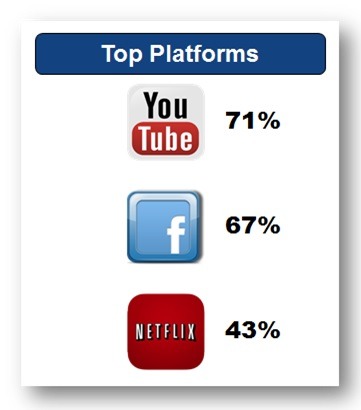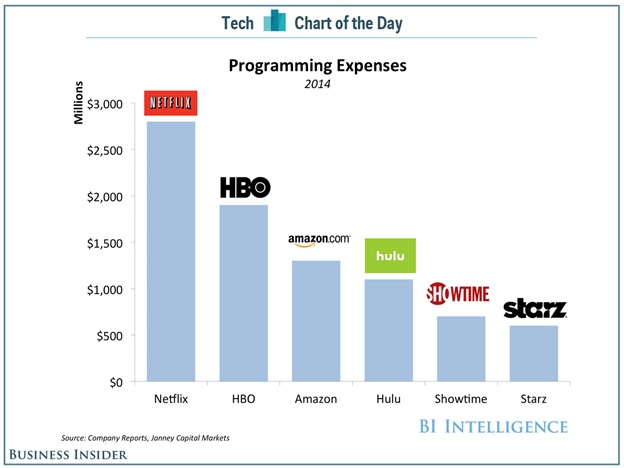There’s not a day that goes by where radio isn’t being attacked or under fire by the likes of Pandora, satellite radio, on-demand elements like podcasts, and even the renaissance of television.
It’s a challenge for a medium – as well as the many great AM and FM radio stations that have been a part of so many people’s lives – to adjust to the growing reality that while broadcast radio will always be around, but has to share a lot of listening experiences with new media challengers.
And sometimes, it may seem like radio is going at its struggles alone. But the reality is far different. And over the last decade or so of Internet dominance in our lives, some very big brands – once thought of as “category killers” – have fallen out of favor or worse, become totally irrelevant. From BlackBerry to Yahoo! to MySpace to AOL, the cycle of dominance to danger has been shortening since the dawn of the World Wide Web.

And that brings us to a big birthday celebration that should be a very happy one, but instead finds an amazing brand that most of us know and use at a crossroads. YouTube is ten years old this month, and while still the leader in streaming video, it is facing a myriad of challenges.
And a lot of them sound just like what radio has been enduring in the past and right now today.
An article in Mashable outlines YouTube’s challenges. While it continues to lead the league in overall online video usage, Facebook is edging closer, along with AOL, Yahoo!, and others.
We’ve seen this play out in our Techsurveys where YouTube’s big lead has been aggressively eroded by Facebook, and now Netflix. In last year’s Techsurvey10, we saw Facebook achieve near parity with the venerable leader, YouTube.
So why is YouTube struggling to stay ahead, and what’s their strategy?
First, there’s monetization. While YouTube has clearly succeeded with pre-rolls and other advertising mechanisms, there is still the perception that it is a free service made up of mostly videos that teens are shooting in their basements.
Radio has experienced a similar but different problem with its revenue generation. The scarcity of media options helped make radio a desirable advertising vehicle for decades, but today, broadcasters struggle to seamlessly make that case. Along with heavy spotloads, radio now finds itself fighting a battle that is focused on the lack of accountability and ROI. Establishing the legitimacy of a sales and marketing vehicle is part of YouTube’s burden, as well as many AM/FM stations.
YouTube is also waging a content war, now faced with having to buy premium programs (they just acquired the rights to Saturday Night Live’s archived material) in an effort to establish value beyond all the other streaming competitors like Netflix and Hulu.
Radio also finds itself in a struggle to keep its quality up in an environment where decreasing sales have led to cutbacks and cost savings. Even though radio has a local edge as well as an advantage of having always been there for consumers, maintaining a quality product – outside of morning drive – is an issue that broadcasters are often finding difficult to solve. Voicetracking is equivalent to much of the consumer generated content on YouTube – it’s filler that isn’t very good and it obscures some of the best programming and personalities.
Of course, it comes down to budget. And in YouTube’s world, its competitors are now ponying up a lot more money for original programming. This chart may surprise you – Netflix is now leading every network (except ESPN) in programming expenditures. In 2014, they spent $3 billion in content creation. Next year, they are expected to commit as much as $5 billion to programming.
Even though YouTube is owned by a pretty big company – Google – they are faced with many of the same challenges that all radio broadcasters face. It comes down to doing more with less, and still producing shows, features, and videos that consumers simply have to have.
And finally, every content conversation and challenge seems to focus on personalities – the proprietary assets that a network – or a broadcaster can own. YouTube has learned a hard lesson that every radio broadcaster has suffered through: growing you own talent and having them picked off by more lucrative offers from the competition.
In YouTube’s case, they’ve done a great job of creating stars like Rosanna Pansino (a topic that we covered in this blog last year), but now the challenge is keeping them in the stable. As a result of watching its video stars getting picked off by Disney and others, The Wall Street Journal has reported that YouTube may be considering talent exclusivity contracts. That will sound familiar to everyone in radio because it’s always been about talent, from icons like Don Imus or Dick Purtan in the ‘70s to Big Boy today. But growing and nurturing them is one thing – preventing them from moving to a larger market or a more lucrative deal across the street is a very different and frustrating challenge.
The recent announcement that Apple has hired well-respected British presenter Zane Lowe has already stirred up speculation that he may be curating (let’s just call it programming) iTunes channels. The would be an acknowledgment that even being able to create playlists from virtually every song ever recorded has limited long-term appeal. A music channel with well-selected songs, stories, and other great content can be compelling and ear-worthy. YouTube and other digital media channels are coming to that realization as well.
In today’s media environment, everyone is re-evaluating their business model, content creation, distribution channels, and the customer experience on a constant basis.
It’s now table stakes. in the race to remain relevant.
- What To Do If Your Radio Station Goes Through A Midlife Crisis - April 25, 2025
- A 2020 Lesson?It Could All Be Gone In A Flash - April 24, 2025
- How AI Can Give Radio Personalities More…PERSONALITY - April 23, 2025





It’s amazing how integrated all this is becoming, When will Apple buy Clearchannel???
Actually, there’s been speculation – and maybe that’s all it’s ever been – that an Apple or a Google could buy a major broadcasting company as a complement to their other assets. When Amazon’s Jeff Bezos personally bought The Washington Post, those rumors began to get more tangible. Thanks for commenting, Billy.
Yeah but why would a smart company like Apple buy a company that fired a cool guy like me?
Marty Bender
Good point!
It’s all about “curated content.” That is where “ipod fatigue” came from, right? The one thing that YouTube still does better than anyone (up to this point) has to do with their reporting metrics. It will be interesting to see how Facebook handles this with their aggressive video rollout.
Liam, thanks. I find it fascinating that even some of the biggest and best digital brands are confronting some of the same dilemmas that radio has faced for decades. Thanks for commenting on the Facebook/YouTube video race.